Vegan Globetrotter is supported by our audience. When you purchase through one of our links, we may earn a small affiliate commission. As an Amazon Associate I earn from qualifying purchases. Your cost is not affected.
==================
Have you ever wondered why raw vegetables are frequently touted as the cornerstone of a healthy diet? Imagine unlocking a treasure trove of nutrients with every bite of raw vegetable goodness—no cooking required! Raw vegetables offer more than just a crunchy, satisfying snack; they are packed with vitamins, minerals, and enzymes that can transform your health from the inside out. In this article, we’re diving into the top benefits of incorporating raw vegetables into your diet, from boosting your energy levels to enhancing your digestive health. Get ready to discover how these vibrant, fresh foods can elevate your well-being in ways you might never have considered!
Raw Vegetable Wonders: Top Reasons to Add Them to Your Diet
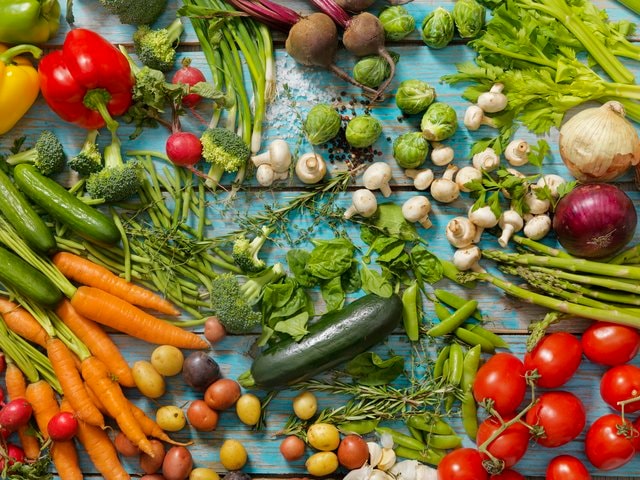
Raw vegetable power is a significant aspect of a healthy diet, offering many health benefits. Raw vegetables are nutritional powerhouses from boosting digestive health to supporting weight management and enhancing skin health. They play a vital role in improving heart health and strengthening the immune system, making them an essential component of a balanced diet. By understanding the benefits of raw vegetables and exploring creative ways to enjoy them, you can harness their full potential for overall well-being and vitality.
Key Highlights
- Raw vegetables offer numerous health benefits, including improved skin health, weight management, heart health, strengthened immune system, detoxification, and elevated nutrient absorption.
- The key nutrients in raw vegetables, such as fiber, antioxidants, vitamins C and K, and enzymes, contribute to their health benefits.
- Raw vegetables like red bell peppers, kale, beets, and zucchini contain vitamins, minerals, and antioxidants that promote overall health.
- Incorporating raw vegetables into your diet is a great way to enjoy their nutritional benefits while adding variety to your meals.
- There are creative ways to enjoy raw vegetables, such as colorful salads, fresh juices, smoothies, healthy dips and spreads, and raw veggie platters.
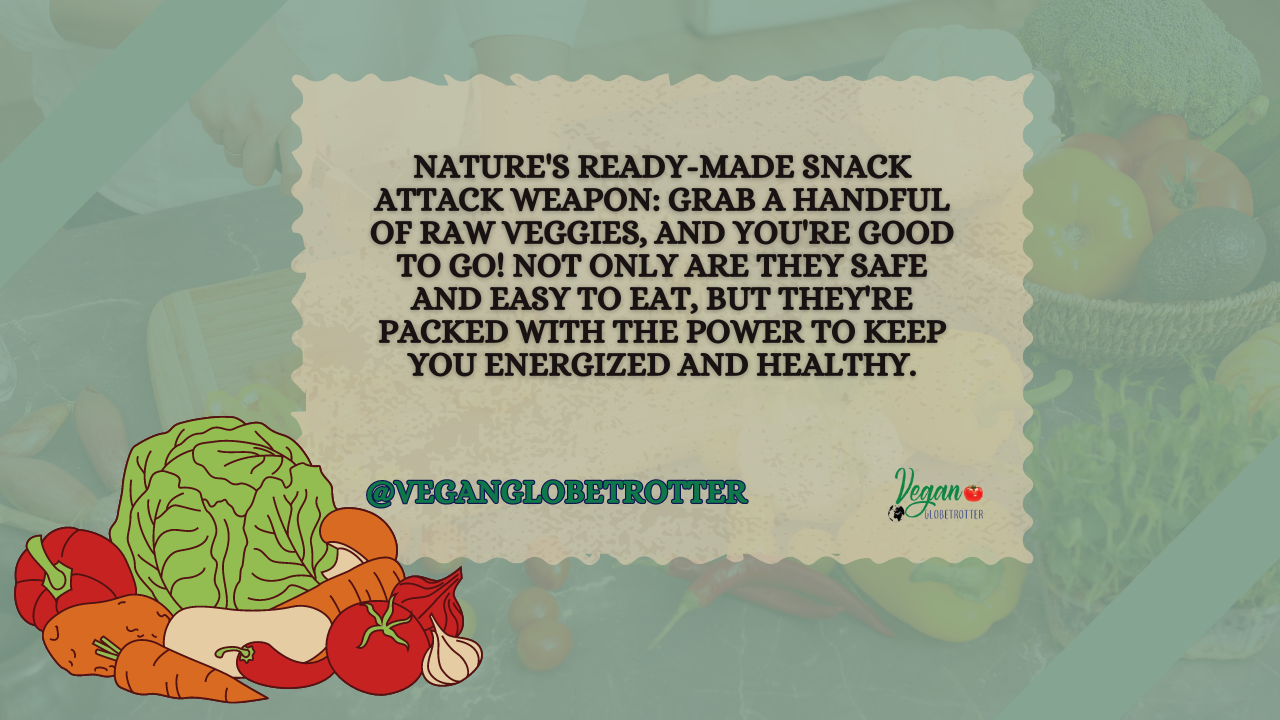
Exploring the Power of Raw Vegetables: Top Benefits
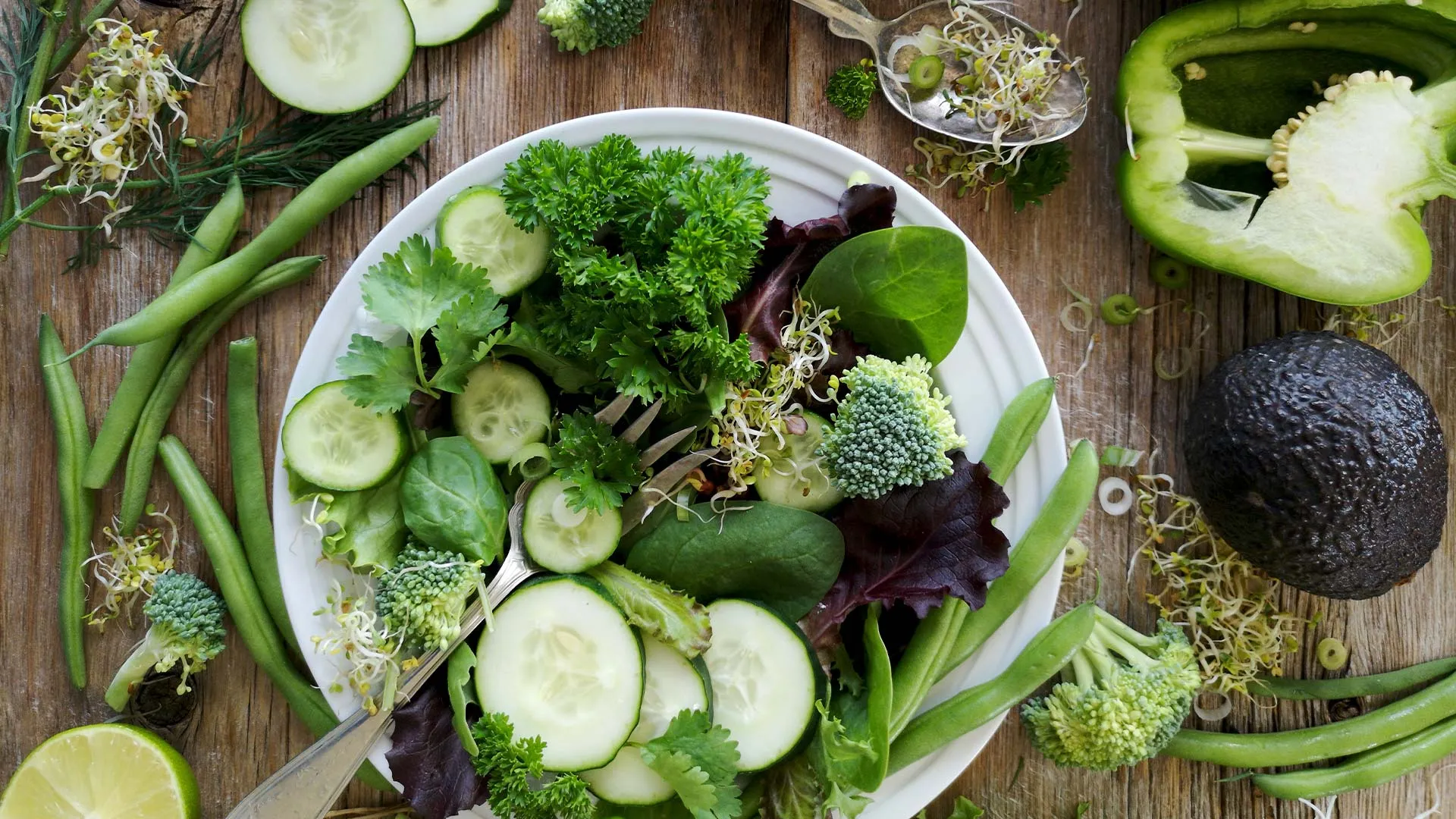
Raw vegetables offer a plethora of health benefits. They are rich in vitamins like C and K, enhancing immune function and supporting heart health. The nutrient absorption from raw veggies aids in weight loss and boosts digestive health through fiber intake. Moreover, their low-calorie content benefits those looking to manage their weight. Incorporating raw vegetables, known for their Raw Vegetable power, can significantly improve your overall well-being and add a burst of nutrients to your meals.
1. Boosting Digestive Health with Fiber-Rich Choices
Fiber-rich raw vegetables are essential for digestive health. They aid in proper digestion and regular bowel movements. These choices help maintain a healthy gut by promoting beneficial bacteria growth and preventing constipation. Vegetables like raw broccoli, kale, spinach, and cauliflower are great additions to your diet.
Their high fiber content supports digestive function and overall well-being. Incorporating these nutrient-dense options ensures optimal digestion and absorption of essential nutrients, contributing to improved digestive health.
2. Enhancing Skin Health Through Antioxidant-Rich Vegetables
Antioxidant-rich vegetables play a crucial role in enhancing skin health. These vegetables are abundant in vitamins C and E, contributing to collagen production and protecting the skin from oxidative stress. Raw broccoli, kale, spinach, and cauliflower are excellent choices.
Antioxidants also help combat free radicals, promoting healthy skin cells and a youthful complexion. Incorporating these nutrient-dense vegetables into your diet can nourish your skin from within, supporting a radiant and glowing appearance.
3. Supporting Weight Management with Low-Calorie Options
Raw vegetables play a significant role in supporting weight management by offering low-calorie options. These raw vegetable choices provide essential vitamins and minerals while keeping calorie intake in check. Vegetables like raw broccoli, kale, and cauliflower are excellent additions to a meal plan focused on weight loss.
Their high fiber content aids in promoting fullness, preventing overeating, and supporting a healthy weight. Including these low-calorie, high-nutrient vegetables can be a smart strategy for successful weight management.
4. Improving Heart Health by Incorporating Green Leafy Vegetables
Green leafy vegetables are a powerhouse for heart health. Packed with vitamin K, they aid in regulating blood pressure and reduce heart disease risk. Their high levels of vitamin C promote collagen production for healthy skin and blood vessels. Consuming raw kale, spinach, or broccoli can also help manage blood sugar levels. Including these nutrient-dense greens in your diet can significantly enhance cardiovascular wellness and overall health. Make them a staple in your meals for a robust heart.
5. Strengthening the Immune System with Vitamin C-Packed Choices
Vitamin C-packed raw vegetables like bell peppers and raw kale are excellent additions to your diet for boosting immune function. Incorporating these nutrient-rich options into your meals can enhance your body’s ability to fight illnesses and infections. Vitamin C supports a healthy immune system, making these choices a smart and flavorful way to stay energized. Investing in your health by including these choices in your daily menu can help fortify your body against external threats.
6. Detoxifying the Body with Natural Cleansers
You can effectively detoxify your body by incorporating natural cleansers in raw vegetables. The fiber content in vegetables like broccoli and kale aids digestion and helps eliminate toxins. Additionally, the antioxidants in vegetables such as spinach and cauliflower support the body’s natural detoxification processes, assisting in cleansing the system. Including raw vegetables like onions and garlic in your diet can further enhance detoxification by promoting the elimination of harmful substances from the body.
7. Elevating Nutrient Absorption through Enzyme-Rich Foods
Enzyme-rich foods play a crucial role in elevating nutrient absorption within the body. By consuming raw vegetable foods abundant in enzymes, such as raw vegetable broccoli, kale, and spinach, you enhance the breakdown and utilization of essential nutrients.
These enzymes aid digestion, ensuring that the body effectively absorbs the vitamins and minerals in the vegetables. This heightened nutrient absorption boosts overall health and optimizes the benefits derived from a diet rich in raw and nutritious foods.
Unleashing the Flavor: Creative Ways to Enjoy Raw Vegetables
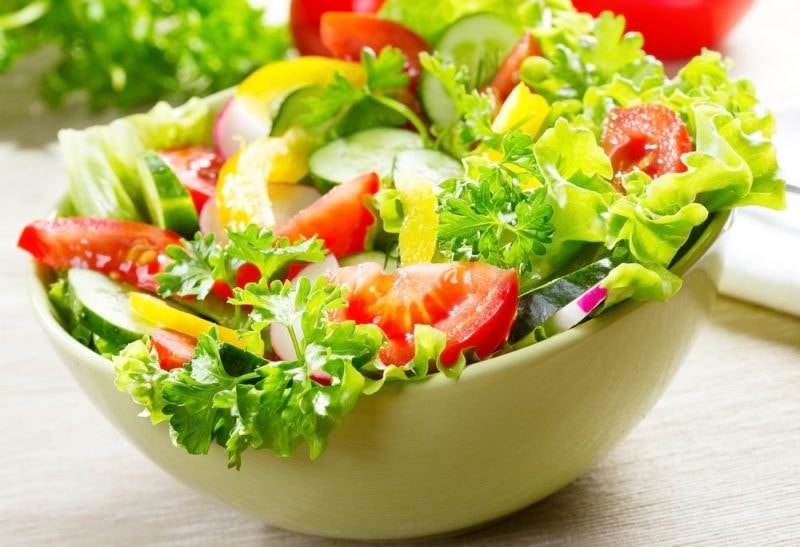
Crafting Colorful and Nutritious Salads, Preparing Fresh Vegetable Juices and Smoothies, Making Healthy Dips and Spreads, and Assembling Raw Vegetable Platters with a Twist are just a few ways to enjoy the versatility and freshness of raw vegetables.
1. Crafting Colorful and Nutritious Salads
Mix and match vibrant raw vegetables like raw broccoli, kale, and spinach for a salad bursting with vitamins C and K. Elevate your salad with olive oil to enhance nutrient absorption. Add raw cauliflower for a nutty taste and raw onions for a flavorful kick. These salads are a powerhouse of health benefits like improved immune function and collagen production. Enjoy a colorful bowl full of numerous health benefits in just one meal.
2. Preparing Fresh Vegetable Juices and Smoothies
Savor the nutritional boost by preparing fresh vegetable juices and smoothies. Blend raw kale or spinach with vitamin C-rich bell peppers for a vibrant drink with immune-boosting properties. Add a twist with sweet potatoes or raw broccoli to enhance the flavor and nutritional value. Experiment with raw cauliflower and carrots for a refreshing mix that supports digestive health. Enjoy the convenience of a nutrient-dense beverage that complements your health goals effortlessly.
3. Making Healthy Dips and Spreads
Prepare nutrient-packed hummus with raw vegetable chickpeas, olive oil, and vitamin C-rich bell peppers for a healthy dip. These spreads offer essential vitamins and beneficial bacteria, promoting digestive health and immune function. Incorporating raw ingredients like nuts and seeds in spreads adds a nutty taste and boosts collagen production for healthy skin.
4. Assembling Raw Veggie Platters with a Twist
Raw vegetable platters offer a delightful twist to your meals. Combine vibrant bell peppers, nutrient-packed broccoli, and crisp carrots for a colorful ensemble. Add a zesty touch with raw cauliflower florets and cucumber slices for a refreshing crunch. Pair them with a creamy olive oil dip or tangy hummus for added flair. These inventive platters elevate your dining experience and provide a wholesome dose of essential vitamins and minerals. Experiment with different combinations to create visually appealing and nutritionally rich platters.
Did You Know?
While raw vegetables offer numerous health benefits, there are some risks to be aware of. Raw cauliflower and Brussels sprouts contain goitrogens, which can greatly interfere with thyroid function. However, these vegetables are safe to consume in moderation, and cooking them can reduce the goitrogenic properties.
Here’s a Video Exploring Whether It’s Better Cooked or Raw
By: Dr. Eric Berg DC
Which Vegetables Should Not Be Eaten Raw?
When it comes to raw vegetable consumption, knowing which vegetables are best enjoyed cooked is essential. Some vegetables can be challenging to digest or contain toxins eliminated through cooking. Here’s a list of vegetables that are generally not recommended to be eaten raw:
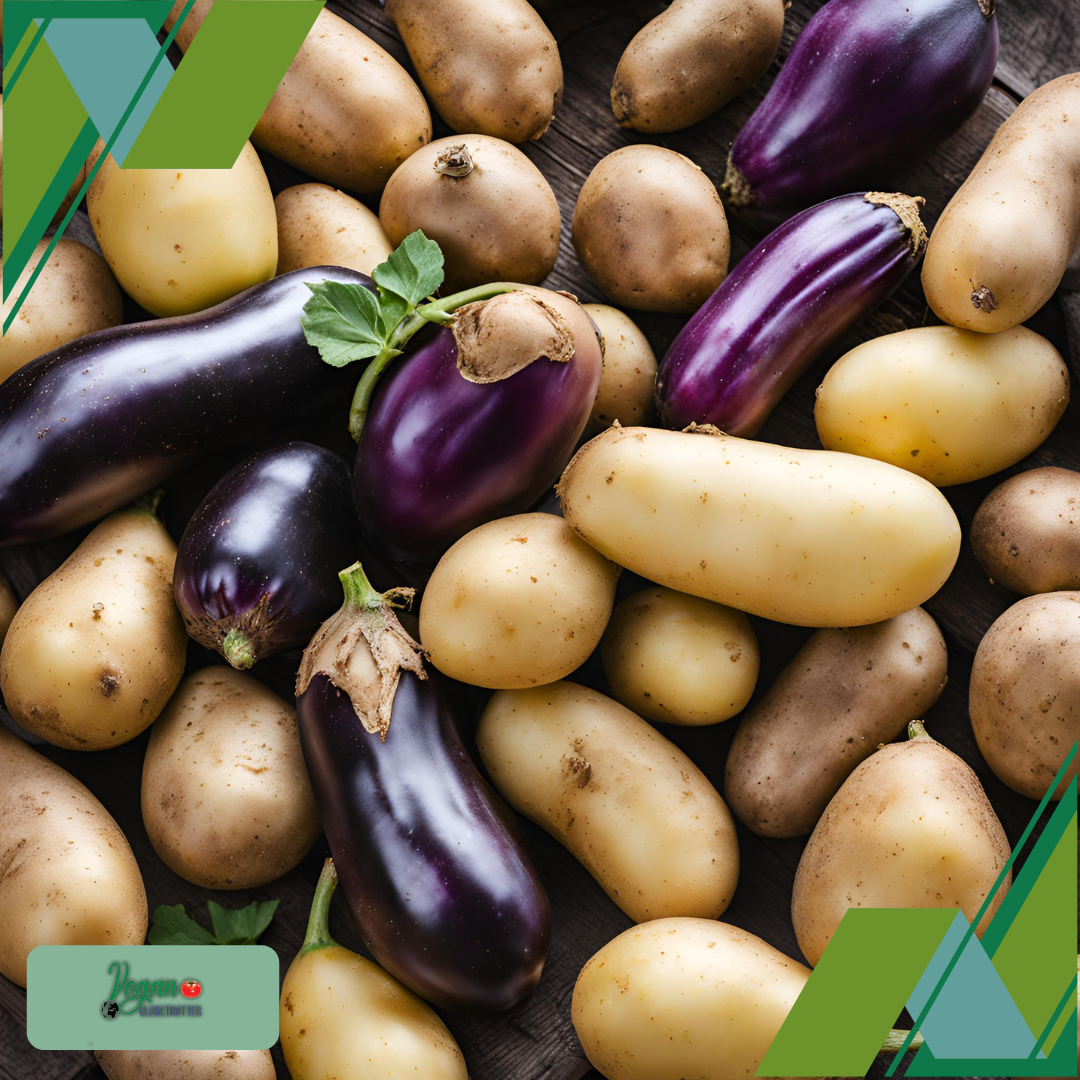
- Potatoes: Raw potatoes contain a toxic compound called solanine.
- Tomatoes: Cooking tomatoes enhances their flavor and increases nutrient absorption.
- Eggplant: Raw eggplant can taste bitter and may be difficult to digest.
- Winter Squash: Cooking winter squash softens its texture and enhances its flavor.
- Sweet Potatoes: Cooking sweet potatoes improves their taste and nutrient absorption.
- Mushrooms: Raw mushrooms can be difficult to digest and may contain toxins.
The Science Behind Eating Raw: Understanding the Health Benefits
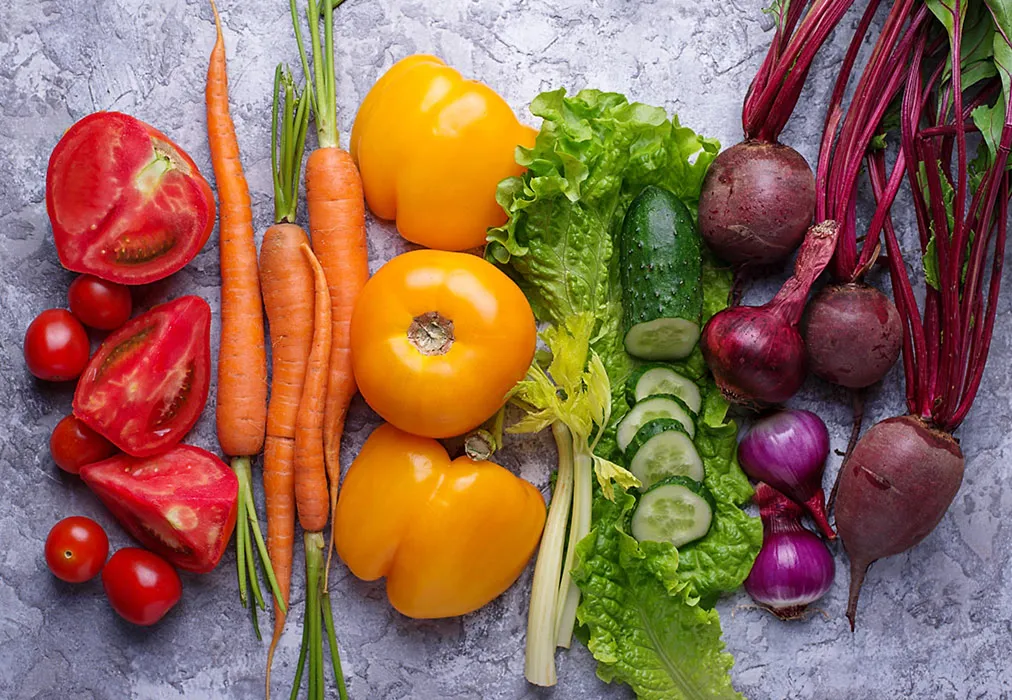
Raw vegetables provide numerous health benefits due to their high nutrient levels, phytochemical content, and enzymes. Phytochemicals are natural compounds found in plants that have been shown to have antioxidant and anti-inflammatory properties. These compounds help protect against chronic conditions like cancer, heart disease, and diabetes. Enzymes present in raw vegetables aid in digestion, muscle function, and immune support. Raw vegetables also retain their full nutrient content, as high heat during cooking can cause nutrient loss. Incorporating raw vegetables into your diet ensures you receive these health-promoting benefits.
1. The Role of Phytochemicals in Disease Prevention
Phytochemicals play a crucial role in disease prevention and overall health. These natural compounds found in raw vegetables have been extensively studied for their potential health benefits. Phytochemicals have antioxidant and anti-inflammatory properties that protect against chronic conditions like cancer, heart disease, and diabetes.
They also support immune function and promote healthy aging. Some examples of phytochemicals include carotenoids, flavonoids, and indoles. Consuming various raw vegetables ensures a diverse intake of phytochemicals, providing optimal protection against chronic diseases. Including colorful vegetables like peppers, kale, and beets in your diet is a great way to increase your phytochemical intake and support overall health.
2. Enzymes in Raw Vegetables and Their Impact on Health
Raw Vegetables contain enzymes that play vital roles in our health. Raw Vegetable enzymes are proteins that facilitate chemical reactions in the body and are naturally present in raw vegetables. These raw vegetable enzymes aid digestion by breaking down food and promoting nutrient absorption.
They also support muscle function and immune system health. Enzymes in raw vegetables are heat-sensitive, meaning they can be destroyed or deactivated during cooking. Therefore, consuming raw vegetables ensures you receive these enzymes’ full benefits. Including raw vegetables like zucchini, garlic, and kale can help optimize enzyme activity and promote overall health.
3. Comparing Nutrient Levels: Raw vs. Cooked Vegetables
Regarding nutrient levels, raw vegetables have an advantage over cooked vegetables. High heat during cooking can cause nutrient loss, particularly water-soluble vitamins like C and B. Raw veggies retain their full nutrient content, providing a higher concentration of vitamins, minerals, and antioxidants.
However, some nutrients, such as lycopene in tomatoes, are better absorbed by the body when cooked. It’s important to note that the nutrient content of vegetables can vary based on factors such as freshness, soil quality, and storage conditions. Including a mix of raw and cooked vegetables in your diet ensures a diverse nutrient intake and maximizes the health benefits of both preparations.
Embracing Raw Vegetable Power: A Path to Better Health
Raw vegetables truly are nature’s gift to our health and well-being. By embracing the power of raw veggies, you can tap into a rich source of essential nutrients that support everything from digestive health to skin vitality. As we’ve explored, incorporating these vibrant foods into your diet offers benefits such as improved heart health, enhanced immune function, and effective weight management. Whether crafting a colorful salad, blending a refreshing smoothie, or experimenting with creative dips, there are countless ways to enjoy the raw vegetable power.

Remember, while raw vegetables are packed with nutrients, balancing your diet with raw and cooked vegetables is important to maximize your health benefits. By understanding the science behind raw vegetables and exploring delicious ways to incorporate them into your meals, you can harness their full potential and embark on a healthier, more vibrant life. So why wait? Start adding more raw vegetables to your diet today and experience the incredible benefits for yourself!
Frequently Asked Questions
What Are the Best Vegetables to Eat Raw?
Some of the best vegetables to eat raw include raw broccoli, kale, and spinach. These vegetables are nutrient-dense and provide many vitamins, minerals, and antioxidants. Incorporating them into your diet raw ensures you receive their full health benefits.
How Do Raw Vegetables Impact Digestive Health?
Raw veggies, especially those high in fiber, promote digestive health. Fiber adds bulk to the stool, aiding regular bowel movements and preventing constipation. Additionally, raw veggies contain prebiotics that feed beneficial bacteria in the gut, supporting a healthy and diverse gut microbiome.
How Often Should I Eat Raw Vegetables for Optimal Health?
For optimal health, aim to include raw veggies in your daily intake. Consuming various raw veggies provides a diverse range of nutrients and phytochemicals that support overall health. Regularly consuming raw veggies is associated with a reduced risk of chronic conditions like heart disease and helps maintain stable blood sugar levels.
Ready to Start Your Vegan Journey? Follow Us on Social Media!
Visit our accounts for delicious vegan recipes, nutritional tips, and inspiring stories from the vegan community. Join us and become part of a vibrant and compassionate network dedicated to healthy and sustainable living!



Don't miss out
when new recipes and information are added!
Join our newsletter for free recipes,
healthy living inspiration, and special offers
You have Successfully Subscribed!